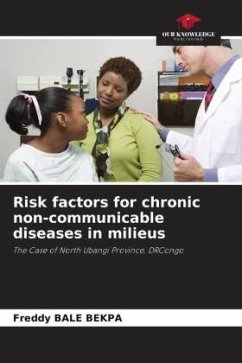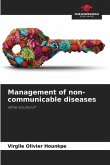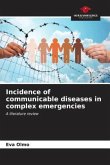Chronic non-communicable diseases (CNCDs) represent a huge global burden today. Globally, NCDs were the leading cause of death in 2012. Indeed, out of 56 million deaths recorded, 38 million were due to NCDs representing 68% of total deaths. In Africa, the epidemiological transition phenomenon is underway at different stages of progress depending on the level of development of each country.This study aimed to determine the prevalence of DRFs of MCNT in the occupational setting of Gbadolite. Specifically, the objectives of the study were to: describe the socio-demographic characteristics of the employees; determine the prevalence of physical DRFs among the employees; identify the risk behaviors for NCDs among the employees; assess the level of stress among the employees; analyze the work environment in terms of risk for NCDs; and make recommendations.The study found a high proportion of physical RDTs in the workplace and that the workplace did not have mechanisms in place to address these RDTs to prevent NTDs.
Bitte wählen Sie Ihr Anliegen aus.
Rechnungen
Retourenschein anfordern
Bestellstatus
Storno








